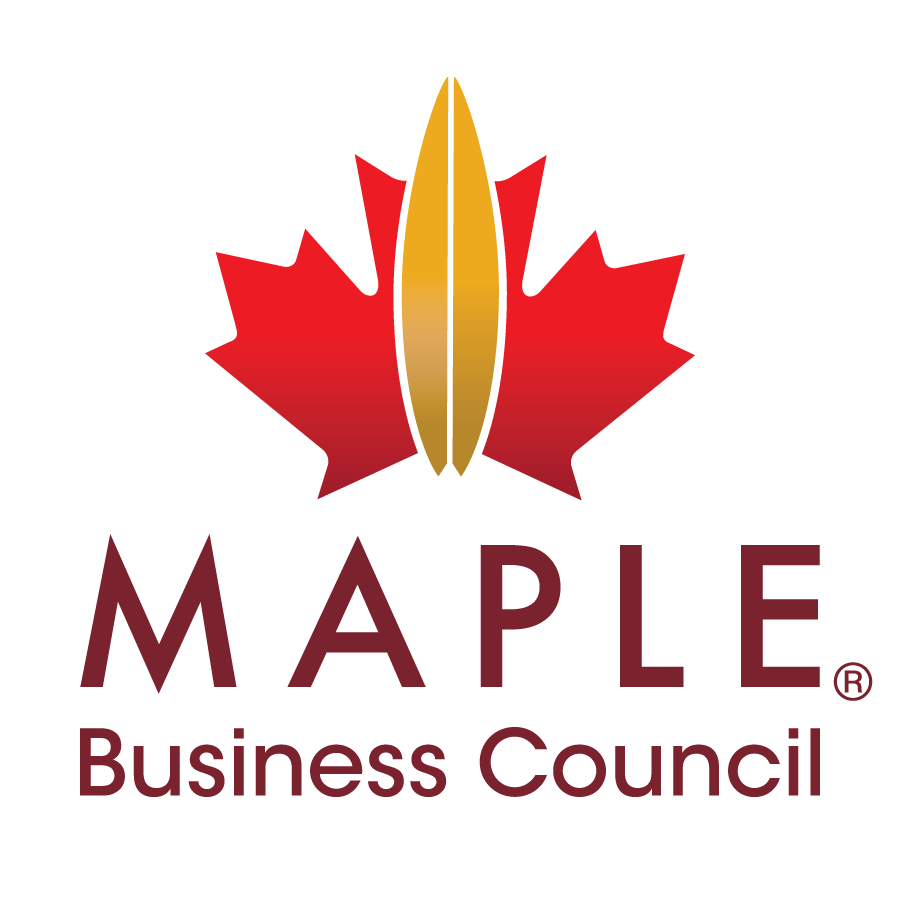From our renewing accounting and tax member, Macias, Gini & O'Connell LLP (MGO), Tax Partner Michael Silvio CPA, shines a light on the topic of R&D tax credits. Offering a potential reduction in tax liability, these credits provide a financial boost for manufacturing companies investing in innovation. Misconceptions about these credits can limit potential benefits so it is important to understand how using these tax credits can provide a substantial difference to your company's bottom line.
Pursuing trade, investment, and entrepreneurship opportunities between Canada and the United States can lead to new opportunities for your team members to move from one country to the other. And when moving from Canada to the U.S., an important facet of a household move is how to manage Canadian investments once one is a U.S. resident. John McCord CFP® CIM® CRPC® TEP, Vice President, Portfolio Manager and Partner at MAPLE charter member organization, Cardinal Point Wealth Management, profiles some key considerations for managing your investment portfolio.
We begin with a look at what 2024 may hold for small-to-mid cap stocks from TMX Group, owners of the Toronto Stock Exchange and the TSX Venture Exchange. The authors, George Khalife (Chicago), Erik Andersen (Dallas), and Delilah Panio (Southern California) discuss how 2024 has the potential to be a landmark year for small-cap stocks and how the TSXV not only presents a viable option but also a unique pathway for growth and success to U.S. companies. As we venture further into 2024, let's watch closely as this exciting chapter in the financial markets unfolds, potentially reshaping the future of micro caps.
The digital economy has presented complex challenges in the allocation of taxation rights between countries. Large multinational corporations, without establishing a physical presence or tax base in Canada, have been generating substantial revenues through digital services within the country. These activities include selling digital services, collecting and monetizing user data, providing social media services and delivering digital advertisements to Canadian users. Under the current multilateral tax frameworks, these digital service revenues remain largely exempt from taxation in Canada unless allocated to a physical presence. This challenge is compounded by the exponential growth of the digital economy, which now accounts for nearly 20% of the global economy.
We are pleased to share some of the key takeaways from a recent "Fundraising in Today's Market" event in Santa Barbara, California organized by our partner, Pasadena-based Alliance for SoCal Innovation. This event series aims to help founders become more adept at securing the capital they need. A panel of local experts answered questions from the Santa Barbara startup community. Thank you to Eric Eide, Managing Director of the Alliance for SoCal Innovation, for sharing some of the top pieces of advice and summarizing some of the key themes discussed.
Karl Schamotta, Chief Market Strategist at Corpay, provides us with a mid-year outlook on the Canadian dollar. The loonie is "lifting off" thanks to fiscal support, stabilizing financial conditions, and a historic surge in immigration which are all helping the Canadian economy and the loonie defy bearish expectations.
Remaining flexible in a changing economic environment is the focus of the article by Glenn Yonemitsu, Managing Director of High-Impact Firms Advisory Services at the Business Development Bank of Canada. Based on over 20 years of working with high-growth companies and identifying the common things that winners and 'market makers' do, Glenn identifies 7 things a business can do to remain flexible and take advantage of market opportunities. Underlying these are the realities that cash is king and that more opportunities are given to those who act proactively.
Expanding your Canadian business to the United States unveils an exciting growth opportunity that requires a well-planned roadmap. This article aims to identify key tax factors that owner-managers often consider when navigating cross-border business opportunities. Unfortunately, some business owners leave tax issues to the end not recognizing they are foundational to your business and in some cases are difficult to resolve later. In addition, unlike Canada’s relatively uniform federal and provincial taxes, the U.S. has over 13,000 taxing jurisdictions between federal, state, county and other political subdivisions for income, sales and other taxes. Even in an electronic world, U.S. tax law at all these levels may amount to a paper blizzard. This article will focus on the U.S. federal tax consequences.
Coming off of a record year is always a challenge and that was certainly the case for the North American public markets in 2022. With record financings and initial public offerings (IPOs) in 2021, the significant downturn that occurred last year was particularly poignant, driven by markets reacting to geo-politcal tensions, ongoing impacts from the pandemic and supply chain issues, and interest rate hikes.
The COVID-19 pandemic threw a wrench into a large number of mergers entered into in late 2019 and early 2020. Not surprisingly, some buyers wanted to walk away or renegotiated their deals. Out of those challenges, two important court decisions emerged in Canada that, for the first time, addressed the meaning of a “Material Adverse Change” and what the typical covenant by the target to act in the “ordinary course of business” really means. The courts also addressed whether a target can recover the lost premium the shareholders would have received if a transaction closed.
The middle market economy—often overlooked in the wake of large public companies and emerging Wall Street darlings—is the backbone of U.S. economic growth, accounting for the majority of new U.S. jobs and some 40 percent of the nation’s GDP.
The public markets in North America have seen records broken across many metrics this year. In the United States, the number of initial public offerings (IPOs) and financings have hit highs greater than in the last decade. As of mid-October, 434 companies had raised over US$157B through IPOs, compared to 264 IPOs in 2020 that raised a total of US$81B.
In their article, "To Hike or Not to Hike? Central Banks in the Pandemic Recovery Era"global payment solutions provider, AFEX, who together with Cambridge Global Payments, will be known as Corpay, profiles the actions of central banks globally as policy makers have grappled with keeping both populations and economies healthy. It's a helpful macro look at what's happened over the pandemic and what we might expect.
Northbound M&A activity from the United States to Canada remains robust, fueled largely by optimism for strong economic growth as we emerge from the COVID-19 pandemic, historic levels of government stimulus and incredibly low borrowing costs. Canada resembles the US in its market-oriented economic system, diverse economy and high living standards and the revamped U.S. – Mexico – Canada Agreement (USMCA), which replaced the North American Free Trade Agreement (NAFTA), should facilitate further economic ties going forward. This brief article reviews certain key legal considerations for Americans thinking of buying a Canadian company by way of a private M&A transaction.
Looking eastward, the TMX Group, owners of the Toronto Stock Exchange and the TSX Venture Exchange and a MAPLE member organization, profiles the resurgence of Special Purpose Acquisition Corporations or SPACs. Last year, the U.S. markets saw 59 SPAC IPOs raise over USD $13 billion and in 2020, we've already seen 178 IPOs raise over USD $65 billion. Thank you to George Khalife, Vice President of U.S. Capital Formation - Midwest at TMX, for providing us a window on the SPAC market.
This month we are taking stock of something that is absolutely integral to our cross-border focus - currency trends. Our friends at member organization and global payment and risk management solutions provider, AFEX, provide a look back to the beginning of the year when we began what at times feels very much like a roller coaster ride in the currency markets. Los Angeles-based Robert Bollé, Regional Manager - U.S. West Coast for AFEX, provides an excellent summary of the USD-CAD relationship throughout 2020 up to where we are today. His commentary underscores the importance of understanding currency fluctuations given the impact it can have on managing our businesses.
















